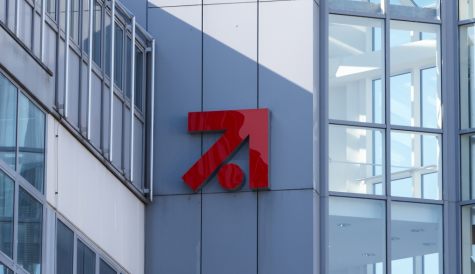Comcast: big is bountiful

Brian Roberts
Comcast, which the European Audiovisual Observatory this week identified as Europe’s biggest media company by revenue, ahead of Netflix, produced a mixed bag of full-year results for 2022, with streaming service Peacock’s success in attracting subscribers set against a darkening outlook for UK pay TV giant Sky.
In his opening remarks on Comcast’s investor call, chairman and CEO Brian Roberts highlighted a solid performance from the US cable business, driven of course by broadband and DOCSIS 4.0 rather than by video, and also what might be described as the strength of the company’s three Ps – Parks, Peacock and Platforms.
Comcast’s three flagship parks performed well, continuing a post-COVID bounceback. Roberts said he was also “really excited” about the latest iteration of NBCUniveral’s investment in theme parks – a Universal Park targeted at younger audiences near Dallas and a year-round horror entertainment experience in Las Vegas.
He also noted Peacock’s 20 million subscriber milestone (“more than double where we started”), with growth driven by a strong slate of movies, sports and originals.
Regarding platforms, he fleshed out plans for a single global use interface later this for Sky Glass, Xfinity, X1, Flex, Xumo and Comcast’s US and international partners. “This scale not only brings us operational efficiencies, but it also puts us in the enviable position when it comes to conversations with distributors, OEMs, programmers, app developers and talent,” he said.
There followed a more downbeat addendum. Sky, Comcast’s expensively acquired European property – the basis for that status as Europe’s largest media outfit – is struggling somewhat. Roberts talked about “the macroeconomic challenges in Europe” but added that there were “some encouraging results” from staying “intensely focused on retention and continuing to provide our customers with the best entertainment and connectivity experiences” – good sales for Sky Glass and success for Sky Mobile and Sky Broadband. Not much mention, however, of pay TV.
It was left to former CFO and now Comcast president Michael Cavanagh to flesh out Sky’s performance. The European outfit added 129,000 ‘customer relationships’ in the fourth quarter, driven by streaming, broadband and wireless customers adds.
While revenue was stable, with gains in some areas offset by losses elsewhere, Sky’s EBITDA was down. That reflects the fact that growth came from broadband and mobile, where the company incurs direct network costs. The fact that sports rights costs were down because of the lull in the English Premier League season to accommodate the late-running of the World Cup means that things could have been worse, and sports costs are likely to be higher this year.
Sky facing headwinds
For all its success in broadband and mobile, Sky nevertheless remains at heart a video outfit. It does not have its own fixed line or wireless infrastructure, so growth in those areas does not automatically feed through to higher margins. The opposite is true for Comcast Cable, where its owned and operated DOCSIS network gives it huge fixed-line reach and an advantage over investment-intensive fibre builders. For Comcast Cable, it is video that eats away at margins, because content rights are expensive – so a switch in emphasis from video to broadband can be seen as investor-friendly.
The headwinds faced by Sky currently are partly structural – the decline in traditional video consumption and increased competition – and partly seasonal – the impact of macroeconomic problems in the UK and elsewhere. Comcast overall can point to the strength of its diverse revenue sources – spanning theme parks, broadband, streaming and free and pay TV. It also has strength from its scale – the case for investing in that unified technology platform that wiil – at least in theory – give it significant advantages in terms of cost, efficiency and possibly functionality, over rivals.
The fact that a US company, Comcast, is Europe’s largest media outfit ahead of another US company, Netflix, highlights the globalisation of the media business and the importance of scale as pure-play media (or media and communications companies) face off tech giants such as Google, Amazon and Apple. That leaves local media players – even those with an international outlook – looking like also-rans, while the likes of the UK’s ITV, number nine on the European Audiovisual Observatory list, seem positively picayune. Those tech giants and their deep pockets present a huge challenge for even the biggest media companies, let alone the small fry.



